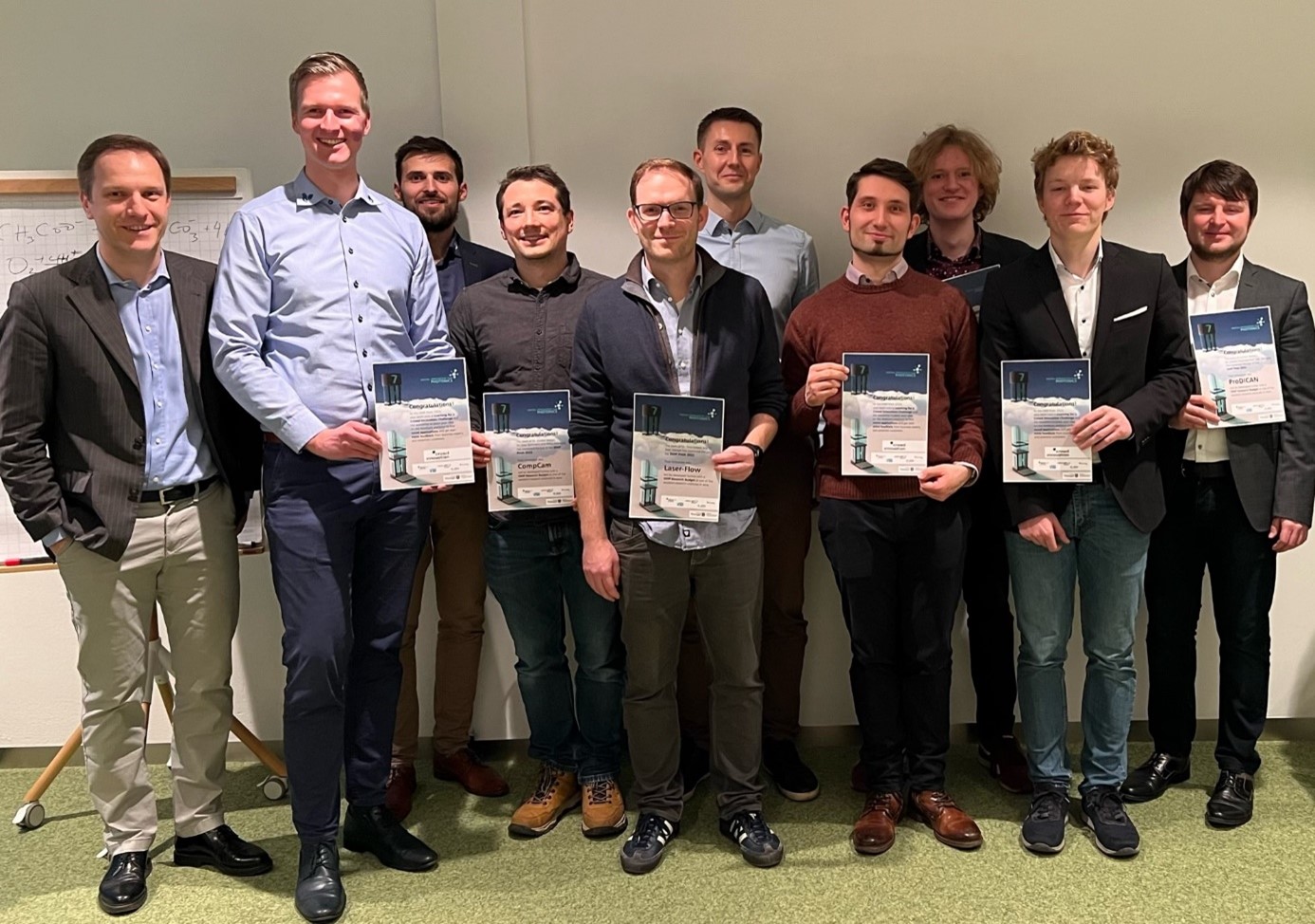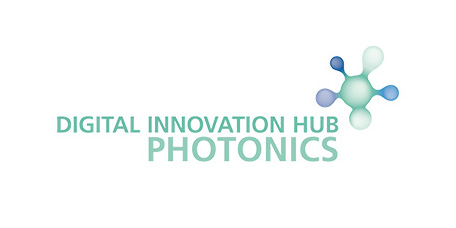Five teams awarded at the Ideas Pitch 2023 at the "Digital Innovation Hub Photonics" (DIHP)
Funding awarded for research ideas in the field of optics and photonics
To support start-ups and fresh ideas in the field of optics and photonics: That is the goal of the "Digital Innovation Hub Photonics" (DIHP). On January 12, for the fifth time, the Hub invited photonics fans and (prospective) founders to present their innovative research and business projects in an "Elevator Pitch". Awards were given for research ideas that aim to stem the death of bees, for example, but also for projects in bioanalytics or medical technology.
The winning teams will receive research budgets of approximately € 55,000 each. This provides a full-time position for a PhD student or postdoc for six months. In total, a budget of over € 275,000 was thus awarded at Pitch 2023. In this way, researchers can now further develop their award-winning ideas in the five research institutes that belong to the "Digital Innovation Hub Photonics".
The winners of the Elevator Pitch 2023 are:
- Laser-Flow | Dr. Tino Schenk and Dr. Sven Stengel (Abbe Center of Photonics)
The Laser-Flow aims to develop a novel high-throughput technique for diagnosing and monitoring single-cell changes in liquid biopsies. - CompCam | Dr. Günter Weber, Dr. Uwe Spillmann and Wilko Middents (Helmholtz Institute Jena)
The CompCam team would like to conduct a feasibility analysis of novel X-ray imaging based on the Compton effect. - In-situ sensor technology (SustainIR) | Steffen Biermann (Leibniz-IPHT) and colleagues at Micro-Hybrid Electronics GmbH, Hermsdorf, Germany
With SustainIR a new method is going to be developed to enable fast and fully automated on-site analysis by means of spectroscopy in the mid-infrared range (dispersive spectroscopy). - ProDICAN | Christin Reimer, Dr. Johann Kufs and Prof. Falk Hillmann (Leibniz-HKI)
Cannabinoids can be produced in cultures of slime molds under controlled conditions. ProDICAN is dedicated to the observation and control of this process using optical methods. - BeeSupervisor | Philipp Landwehr, Albert Dehne and team (Fraunhofer IOF)
An optical detection system to detect infestation of a beehive with the parasite Varroa destructor (varroa mite) is being developed as part of the BeeSupervisor project. Varroa mites are responsible for most of the worldwide decline in bee populations.
In addition, three other teams were given the opportunity to further develop their ideas together with the Fraunhofer Center for International Management and Knowledge Economy IMW, for example with the help of market feedback. The teams are:
- Situation analysis around the patient bed | Tobias Gebhardt, Marcel Walz and colleagues for GWA Hygiene GmbH, Stralsund, Germany
Is a patient lying safely in his bed or did a fall occur? Is nursing staff present at the bedside or is the patient alone? A universal sensor unit is designed to answer these questions and thus enable a situation analysis around the patient's bed. - BeeSupervisor | Philipp Landwehr, Albert Dehne and team
An optical detection system to detect infestation of a beehive with the parasite Varroa destructor (varroa mite) is being developed as part of the BeeSupervisor project. Varroa mites are responsible for most of the decline in bee populations worldwide. - EnLight | Dr. Jan Sperrhake, Prof. Maria Mittag, Michael Steinert, Dr. Jan Petersen and Prof. Thomas Pertsch
The EnLight project is dedicated to the development of nanostructures on glass chips with multiple chambers of different environmental conditions and microbial cultures migrating in between.
DIHP Pitches: Space for exchange and networking
The award-winning teams were selected by a jury of experts. It was made up of representatives from various institutions from business and science - including companies such as JENOPTIK, associations, transfer experts from the participating institutions - but also, in particular, experienced founders such as Peggy Bärenklau (heracle GmbH) and Dr. Peter Miethe (Posanova GmbH). Dr. Claudia Reinlein, who herself presented her ideas for the first time at the DIHP pitch in 2020 and later founded ROBUST AO GmbH, was also a member of the jury. She says of this year's pitch, "It's especially exciting for me to now sit on the jury myself after three years and hear so many interesting topics."
On the idea of DIHP Pitches, Dr. Sebastian Händschke, DIHP project manager, explains, "With the pitches, we make it easier for internal and external idea teams to work together with university and non-university institutions. Participants benefit from the feedback, and the jury is pleased to see many interesting projects. The exchange is helpful for all sides - pitchers (applicants), institutes and other partners. It is particularly pleasing that several SMEs (small and medium-sized enterprises) also applied this year."
One of the winners of this year's pitch, Dr. Tino Schenk from Team Laser-Flow, also agrees: "We are still at the beginning of our development. For us, it was a very fitting and successful event." Philipp Landwehr from Team BeeSupervisor adds, "Already in the waiting room we exchanged ideas with the other pitchers and met so many exciting people and had interesting conversations."
The pitches took place on January 12 for the first time again in presence after the pandemic.

